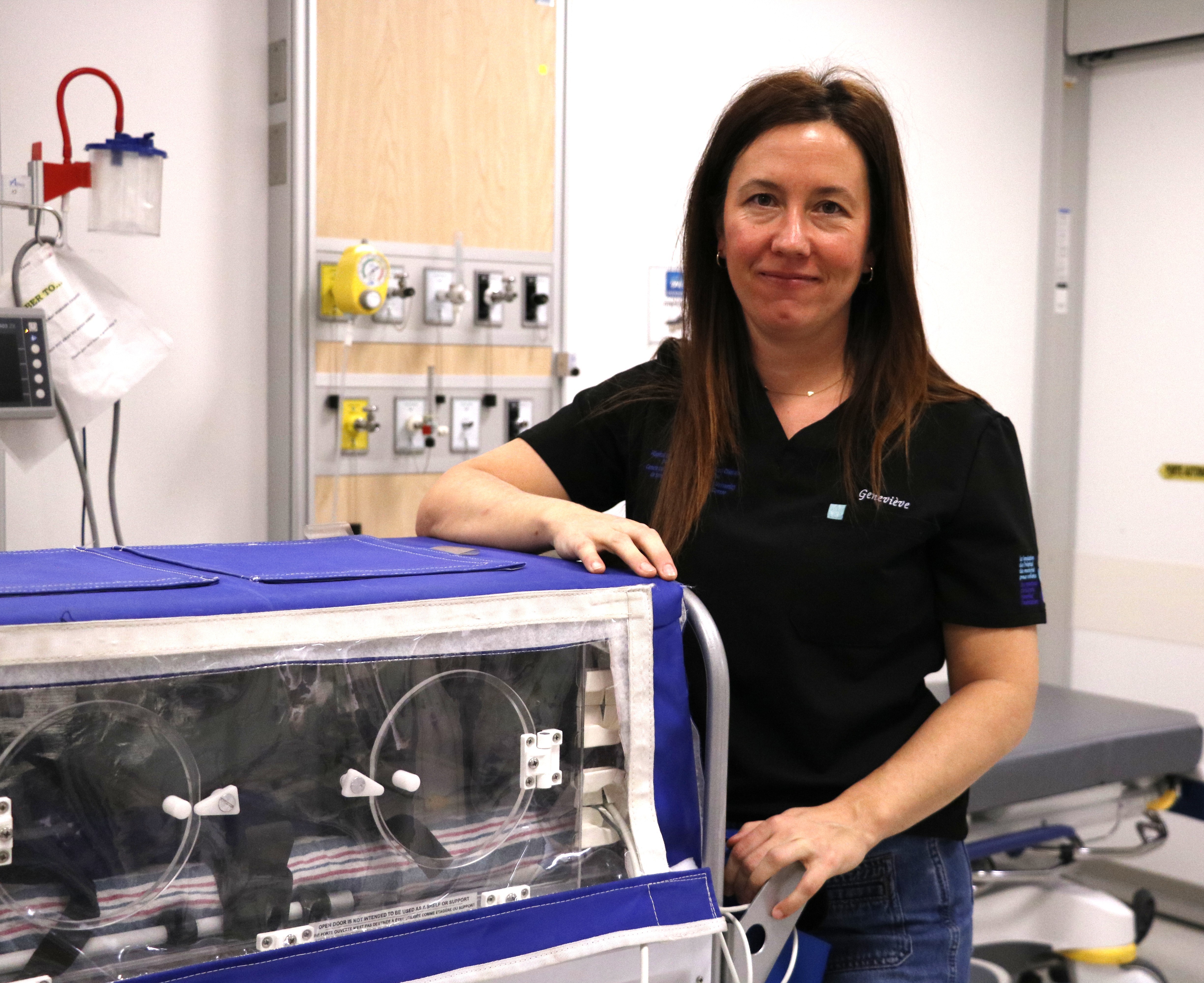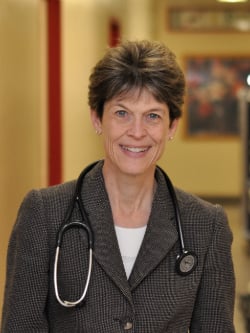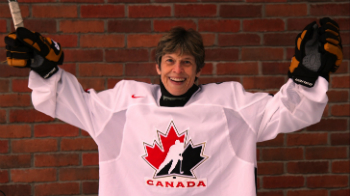
Celebrating Critical Care Transport Nurses at the MCH
18 February 2026
Rise in respiratory infections and measles outbreak: important infection prevention measures at the Montreal Children’s Hospital.
Read moreWelcome to the Montreal Children's Hospital

3 March 2014
In this issue of Doc Talk, we bring you a snapshot of Dr. Claire LeBlanc, Pediatric Rheumatologist and Sport Medicine Physician. Dr. LeBlanc is head of the MCH Rheumatology Department and is a tireless proponent of healthy living in childhood.
In this issue of Doc Talk, we bring you a snapshot of Dr. Claire LeBlanc, Pediatric Rheumatologist and Sport Medicine Physician. Dr. LeBlanc is head of the MCH Rheumatology Department and is a tireless proponent of healthy living in childhood.
Why pediatrics?
I knew very early on as a first-year medical student that I wanted to specialize in pediatrics because I really enjoy working with kids. I had lots of experience with children through recreational and sports programs.
What attracted you to further specialize in the areas of rheumatology and sport medicine?
My interest in sport medicine came about in two different ways. First, as a general pediatrician in practice a number of years ago, I started to notice that the children who were coming into my practice were getting heavier and heavier. I wanted to help reverse this trend so I got involved in program and policy development to promote physical activity. The other thing that happened was colleagues of mine asked me to be a sideline physician covering some of their high school sporting events. That led me to learn more about the musculoskeletal system and complete additional training in sport medicine. I love my job! I find that my knowledge in sport medicine helps me be a better rheumatologist and my understanding of rheumatology helps me be a better sport doc.
You talked about children and wellness. How concerned should we be about the level of physical activity of our children?
I think we need to be very concerned that the children of today aren’t nearly as fit as we were when our generation was growing up. Obesity trends are rising, and associated chronic diseases are also increasing. We’ve identified the problem and now we need to do the right thing, which is to make sure our kids are eating healthy, sleeping well, focusing less on screen-time and getting enough physical activity. I think it’s really important that we make sure every child has an opportunity to go outside and play in, yes, team sports, but also unorganized free-play.

You spend a lot of time and energy promoting wellness among youths. What do you do to maintain your own wellness?
I enjoy all sports. What I did the most growing up was elite fastball. My other love is hockey, which I used to play competitively but now just for fun. I play any position except goalie!
As head of the MCH Rheumatology Department, you are chiefly responsible for the hospital’s pediatric rheumatology training center. Talk about the importance of that center.
The division of rheumatology at the Montreal Children’s Hospital is one of three pediatric rheumatology training centers in Canada, and it’s the only one that trains in a bilingual setting. Our training program is outstanding, for the first time in my career; I’m actually able to be involved in the teaching of future pediatric rheumatologists. With my background in sport medicine I can also provide the residents exposure to this specialty.
Community involvement in medicine most-often translates into fundraising. Talk about the importance of donations to your department.
We’re such a small division it’s very difficult to find sufficient time to write grants to convince agencies of the importance of a purchase like a portable ultrasound machine. Yet without this technology, children with rheumatic diseases won’t receive state-of-the-art care. I can’t begin to find the right words to thank the two anonymous donors whose generous support allowed this purchase. With the portable ultrasound machine we can now efficiently identify all affected joints and surrounding tissues to provide suitable targeted therapy.
You’ve taken interesting career paths. How did you land at the Montreal Children’s Hospital?
What I tell everyone is that everybody just kept kicking me out all the way across the country. (Chuckle) No, that’s not true. My father was in the Air Force and at the time we were posted in the Maritimes. That’s how I got into Dalhousie University in Halifax. He then retired in Ottawa and I was able to transfer to the Children’s Hospital (of Eastern Ontario) to complete my residency. After I completed my rheumatology training in Toronto, I worked in Ottawa and later went to Edmonton, but I was looking for an opportunity to get back east. When the opportunity came up in Montreal, I thought it was a gift. Not only was I going to be closer to home, but I was going to be able to join outstanding colleagues and be involved in a training program to boot. I also wanted to improve my French. I’m Acadian but always went to English schools. It’s long been a goal of mine to improve my spoken and written French and I’m in the process of doing just that.
What’s the most rewarding part of your work?
Being able to see the joy in the eyes of children and their parents when we can successfully bring their rheumatic condition into remission through appropriate treatment. We know that once children with arthritis get their disease under control, they can live a healthy, normal life and do all the things that their friends can do – even sports! The most rewarding thing is being able to see a child not have to limit their dreams and then see them come true.
And if you weren’t a doctor, what would you be doing now?
Probably teaching kids and promoting wellness in the school system.
What’s the most important thing you’ve observed in the children in your practice?
That kids have more courage than many of us adults. They carry on with every day activities even with arthritis in many of their joints. What’s astonishing is how surprised parents can sometimes be when their child starts to regain prior abilities almost as if they never had arthritis. While the parents maybe didn’t think it would ever be possible, I kind of think the child might have.